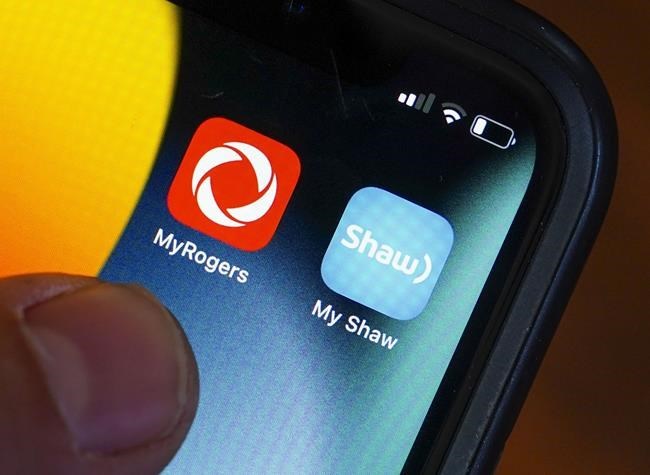OTTAWA — Key players and close watchers of Rogers Communications Inc.'s proposed takeover of Shaw Communications Inc. shared their views on the $26-billion deal at a House of Commons committee Wednesday as Industry Minister François-Philippe Champagne deliberates on its fate.
Critics of the deal, including academics and competitors, used the industry and technology meeting to argue that Champagne should either block the deal entirely or impose stricter conditions on it, while also raising concerns about the enforceability of the criteria he has already set out.
Proponents of the deal, including Rogers chief executive Tony Staffieri, emphasized the extensive and robust regulatory review that has found the deal meets the standards of sa╣·╝╩┤½├Į's competition laws, including through weeks of hearings at the Competition Tribunal.
The tribunal's decision was further upheld by the Federal Court of Appeal on Tuesday, a decision that the Competition Bureau said it was deeply disappointed about but accepts.
The committee, which previously recommended against the deal, has no power over the decision that now rests with Minister Champagne, who said Wednesday he is still looking at the Court of Appeal's ruling and other considerations and will make a decision in due course.
“I set a number of expectations that I would like to be met. And that’s what I’m going to be reflecting on, what are the expectations that I can demand that would ensure competition, that would ensure the fact that we have affordability," he said.
At the committee, Staffieri looked to remind members of the numerous commitments Rogers has made already on investments, along with the benefits of selling Shaw's Freedom Mobile to Quebecor Inc.'s Videotron Ltd. as part of the deal.
"These transactions have gone through a rigorous review, and will increase competition," said Staffieri.
Edward Iacobucci, a professor at the University of Toronto's Faculty of Law, agreed that the deal had seen a fair and rigorous review, while Jennifer Quaid, an associate professor at the University of Ottawa's Faculty of Law, raised several concerns about how the review took place, as well as whether all of the necessary expertise was represented at the Competition Tribunal.
"I think it's time to reconsider whether we have the right decision-making body," she said.
Keldon Bester, co-founder of the Canadian Anti-Monopoly Project, used the forum in part to push for Champagne to add more conditions to his approval of the deal, including more aggressive pricing benchmarks, a timeline to reach them and consequences if they aren't met.
He and others also emphasized the need to reconsider current competition laws, including through the public review set to launch soon.
Members of Parliament also raised concerns about the enforceability of the conditions of the deal, echoing concerns raised by the Competition Bureau that the numerous benefits Rogers is offering to Videotron are not reliable, with the two companies already feuding about service agreements in Quebec.
Committee members also raised concerns on how Rogers was able to choose who would be its wireless competitor in Western markets when it chose Videotron, with Globalive Inc. chairman chief Anthony Lacavera telling them that he bid close to a billion dollars higher than Videotron did for Freedom.
Staffieri maintained that Rogers chose Videotron as it best met the criteria set out for a viable fourth national carrier, including a proven track record, significant scale, and a credible path to a 5G network.
Rogers, which first proposed the deal in March 2021, is aiming to close it by the extended Jan. 31 deadline.
This report by The Canadian Press was first published Jan. 25, 2023.
Companies in this story: (TSX:RCI.B, TSK:SJR.B, TSX:QBR.B)
The Canadian Press



